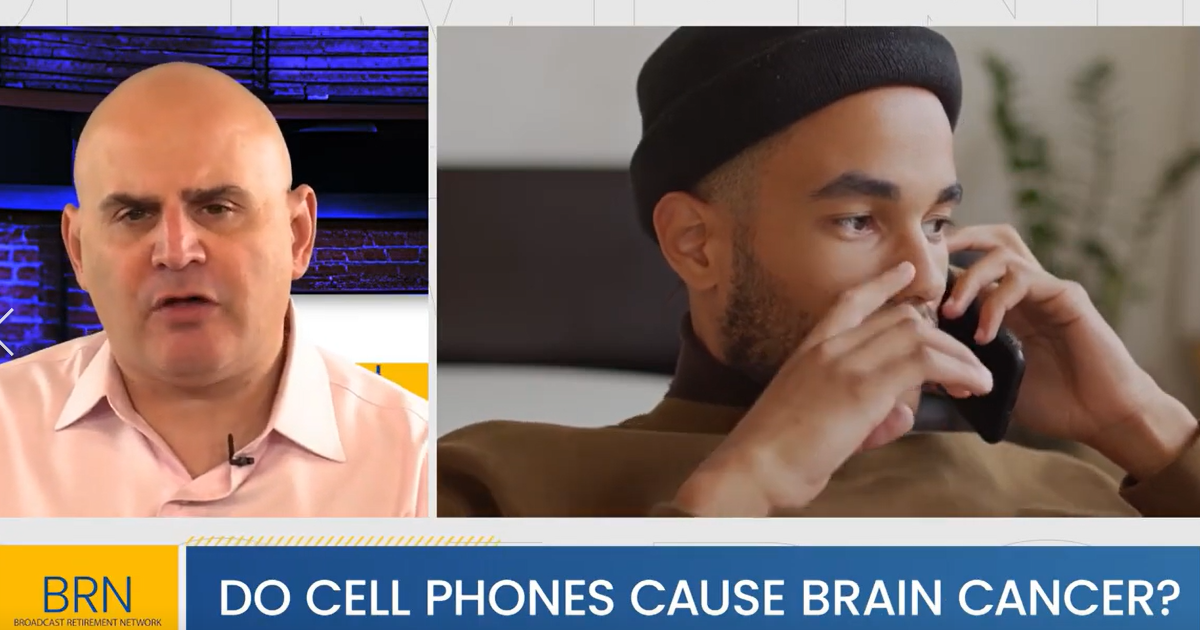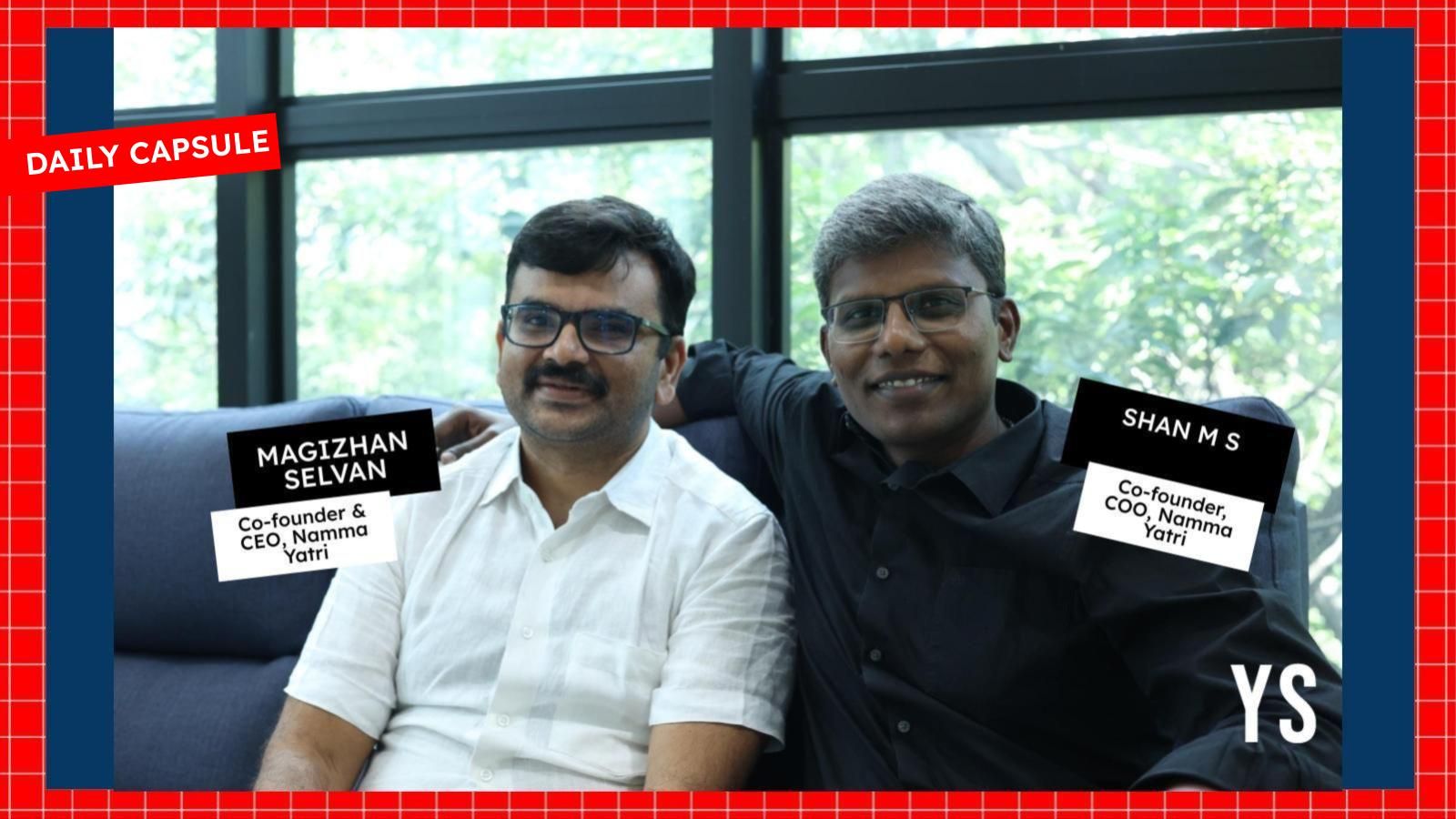Copyright The Street

Cell phones emit non-ionizing radiation, which does not increase cancer risk Broadcast Retirement Network’s Jeffrey Snyder discusses whether cell phones cause brain cancer with Medical University of South Carolina’s Daniel Landau, MD. Jeffrey Snyder, Broadcast Retirement Network This morning on BRN, do cell phones cause brain cancer? Joining me now is Dr. Daniel Landau of the Medical University of South Carolina. Dr. Landau, so great to see you. Thanks for joining us this morning. Daniel Landau, MD, Medical University of South Carolina Thank you so much, Jeff. I’m excited to be here. Jeffrey Snyder, Broadcast Retirement Network Yeah, and I think I really like this story because maybe it helps dispel some urban myths that are out there, maybe around cell phones and radiation and all those kinds of things. You and the team actually did a lot of research around this. What can you tell us based on your research about cell phones and whether or not the radiation from them actually can contribute to cancer, brain cancers? Daniel Landau, MD, Medical University of South Carolina Absolutely. So I think one of the important messages here is that there are multiple forms of radiation and not all forms carry a risk of increasing the risk of cancer or other health-related conditions. Mostly when we’re talking about radiation and the risks associated with them, we’re referring to what’s called ionizing radiation. The difference of ionizing versus non-ionizing is that some forms of radiation can displace electrons which can result in DNA damage. And at the core, cancer is a disease of broken DNA. So radiation that can lead to that electron displacement and break DNA is ultimately the type that’s affiliated with cancer risk. Non-ionizing radiation does not carry that same risk. And cell phones utilize a form of non-ionizing radiation, mostly in the form of a radio frequency. So theoretically, we would not expect to see a major risk of cancer development from use of cell phones, but with any new technology and cell phones are something that went into widespread use during the course of our lifetimes, it can take many years to see the long-term implications of anything that’s new. So a lot of what we looked at here was looking back at, are we seeing higher rates of certain cancers, mostly brain tumors, because that’s where a lot of people hold their phone, and we did not see higher rates emerge. So it offered us reassurance that that non-ionizing form of radiation that cell phones utilize are probably not increasing the risk of certain cancers. Jeffrey Snyder, Broadcast Retirement Network Yeah, and look, just as an aside, I remember in the 1980s, Gordon Gekko had that big phone. Remember that big phone he had in the movie, Wall Street, Michael Douglas’ character, and he put it up. I mean, that was a big phone. And I would suspect that if anything was gonna happen, it might be from something like that. But Doctor, you make a great point. We are surrounded. I mean, we have radiation coming through the Earth’s atmosphere. A lot of it is shielded by the atmosphere. I’m not a scientist, but I’ve read enough to know that that’s done. There’s radiation when the astronauts went to the moon in the Van Allen belts. So we, and if you’re around Wi-Fi, there’s all sorts of things kind of floating in the air, in terms of radiation and data and whatnot, and that can have an effect. Are there some lessons here, even though we know from the research, and again, long-term, you gotta keep studying this, are there things we should and shouldn’t do with our phone? Like, for example, should we, I guess we shouldn’t lay with the phone next to us in bed, perhaps. Are there things we should be doing? Daniel Landau, MD, Medical University of South Carolina So, I mean, me personally, I do like to use a headset, hold the phone at a little bit of a distance, but that’s not based on science. That’s more based on personal preference. Not so much because of that theoretical cancer risk, but there are other concerns with very frequent use of cellular phones or holding them very close to us. For instance, people that sleep next to their phone, there’s some studies that having the phone that close to you may disrupt your circadian rhythms and disrupt your ability to go in and out of what we call REM sleep. So there may be detrimental effects that are not cancer-related, but can still impact us in other ways. Jeffrey Snyder, Broadcast Retirement Network Yeah, and probably also storing the phone on your body. I mean, you put the phone in your pocket, so theoretically, that phone would be, I mean, I put it in my front pocket, I put it in my back pocket. I don’t put it in my shirt pocket because it won’t fit, but theoretically, if it’s gonna impact, if it could impact your brain, it would impact other areas of the body as well. So it’s not just putting the phone up here, it’s putting the phone down here and here, et cetera. Daniel Landau, MD, Medical University of South Carolina Absolutely, and I recall a few years ago that there was a theoretical concern about having phones in our pockets and could that somehow affect fertility because that’s where some of the organs involved in procreation sit, but that’s another fear that has not been founded. So it appears that based on the radiation being non-ionizing and more radio frequency, that it’s not causing that damage to DNA and causing the risks that we’re discussing today. Jeffrey Snyder, Broadcast Retirement Network Yeah, and I have to believe that if the manufacturers of these phones, whether it’s Apple or Google or whoever makes the phone, Android, whatever, why would they, they have to be aware of these things because they would be at some level, you know, I’m not an attorney, neither are you, but they would be at risk for not having a product that was detrimental. I mean, the industry is littered with examples where products have been created, not related to cell phones, that have had negative effects on the human body and therefore those manufacturers have gotten sued and perhaps even sued out of business. So I have to think that studies like yours informs, I’m not taking their side, I think it informs manufacturers into the risk and they wanna make sure that whatever they create doesn’t do harm because it’s gonna blow back on them in many ways. Daniel Landau, MD, Medical University of South Carolina Yeah, I think that you’re exactly right. And relatively recently in the news, there was a lot of news coming out about Roundup, about pesticides and their risks of causing cancers like lymphomas. I imagine that cell phones, if they were shown to increase cancer risk would fall into a similar category where there could be legal implications, but just as importantly, humanistic implications. I don’t think that these companies have any interest in harming their consumers. So understanding the risks and understanding what’s happened over time is important for them as manufacturers, just as it is to us as consumers. Jeffrey Snyder, Broadcast Retirement Network Yeah, I mean, you boil it down into, you don’t wanna knock off your consumers because then they won’t be consumers and you have less consumers to buy your product. Doctor, just last question, how do you follow up on this research? You talked about testing the long-term implications of things like cell phones, radiation, what’s next? Because in this study, there were quite a few people included. You did a lot of work. How do you follow up on this? Daniel Landau, MD, Medical University of South Carolina There will be a longer term follow-ups. Sometimes we see things emerge with many more years of follow-up. However, I think that the results decently speak for themselves. One thing that we will probably look at as scientists is that despite it all being non-ionizing radiation, the frequencies do change from older models of cell phones to newer models of cell phones. So I think that there will still be some research to come, but I think these results were very reassuring and can offer us some comfort in knowing that we essentially can’t live without cell phones but we don’t have to be excessively worried about that risk of cancer at this point. Jeffrey Snyder, Broadcast Retirement Network Yeah, I grew up with the fax machine. That is the way of the dodo. Now everything is done on a computer that is more powerful than the one that took us to the moon. That puts a lot in perspective. Dr. Landau, we’re gonna have to leave it there. Great research. Keep up the great work, and we look forward to having you back on the program again very soon. Thank you so much. Really appreciate your time. And don’t forget to subscribe to our daily newsletter, The Morning Pulse, for all the news in one place. Details are at our website. We’re back again tomorrow for another edition of BRN. Until then, I’m Jeff Snyder. Stay safe, keep on saving, and don’t forget, roll with the changes.



